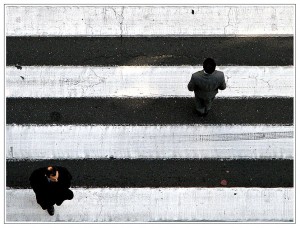Waag Society, Institute for Art, Science & Technology, is an interdisciplinary non-profit media lab aiming at understanding and reflecting on the role of technology in society through artistic research, critical design and social innovation. In interdisciplinary teams and in close co-operation with end-users, Waag Society develops technological artifacts that enable people to express, connect, reflect and share information, goods and responsibilities.
What is the problem space we will address?
We will produce critical and speculative design concepts for “inclusive interactions” in future smart cities, empowering all citizens to experience public spaces on their own terms, regardless of age, health conditions, and cognitive or physical abilities. Similar problem spaces are sometimes addressed only in terms of accessibility, for example when designing for older adults, with the risk of medicalizing the design space and foregrounding physical and cognitive deficits. In this charrette we imagine a complementary approach, one that is expressly non-solutionist and speculative. Instead of pointing at (supposed) deficits as problems to be solved, we prefer to frame them as opportunities to explore. To do so, we turn to speculation and critical design, and we envision provocative artifacts and interactions: by putting speculative concepts side-by-side with our everyday reality, we want to inspire a different perspective on how to design for participation and inclusion.
Which methodologies will be adopted?
We will propose a methodology based on the ethnographic observation of everyday interaction, combined with elements of critical and speculative design, and “design futuring”. It will enable designers to imagine alternate realities by sketching artifacts that characterize them: by doing so, possible futures are made visible and possibly critiqued, thus facilitating reflections on our present reality from a different point of view.


